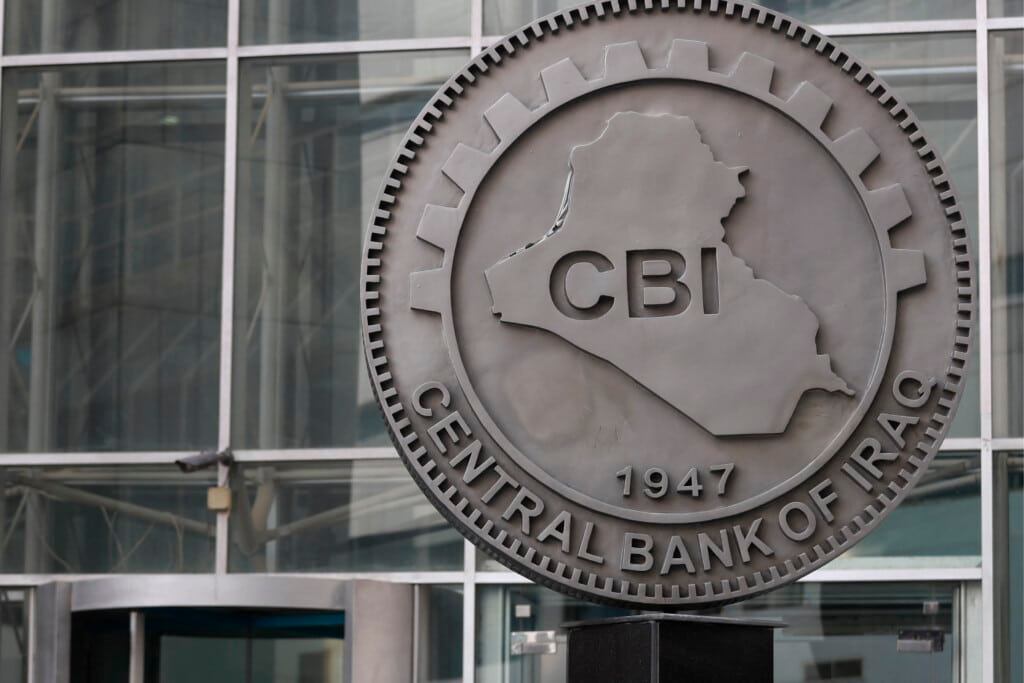
The Central Bank of Iraq (CBI) revoked Bank Melli of Iran’s operating license on February 8, following increased U.S. pressure to untangle Iraq’s financial system from Iranian money laundering and sanctions evasion schemes. While this may appear to signal Iraq’s willingness to restrict Iranian access to Iraqi banks, the move is a symbolic gesture to appease the United States and is unlikely to significantly alter Iran’s ability to exploit Iraq’s financial system.
Washington and Baghdad had previously restricted Bank Melli’s illicit financial activities through various means, including the imposition of sanctions, restriction of access to the U.S. dollar, and the designation of third-party auditors to monitor the bank’s transactions. In 2018, the U.S. Treasury designated Bank Melli for channeling funds to the Islamic Revolutionary Guard Corps Quds Force (IRGC-QF) as well as Iran’s Ministry of Defense and Armed Forces Logistics. Treasury noted at the time, “The IRGC-QF has used Bank Melli to dispense funds to Iraqi Shia militant groups, and Bank Melli’s presence in Iraq was part of this scheme.” Bank Melli Foreign Exchange Vice President Mohsen AminZare claimed in 2019 that CBI had restricted the activities of Bank Melli branches in Baghdad, Najaf, and Basra due to escalating U.S. alarm, adding that “Bank Melli is the Iranian Central Bank’s main currency exchange arm.”
After the U.S. Treasury announced sanctions on the Central Bank of Iran in May 2018, Iraq’s central bank issued a statement banning the dollar from any transactions between Iraqi and Iranian banks. In November 2018, the Central Bank of Iraq issued a similar statement calling on Iraqi banks and currency exchange businesses not to supply dollars to Iraqi tourists visiting Iran. Last year, the U.S. Treasury and the Federal Reserve Bank of New York banned 14 Iraqi banks from conducting dollar transactions due to the risk of the currency being redirected to sanctioned Iranian entities.
Similarly, CBI’s decision to revoke Bank Melli’s operating license comes only a few days after Treasury’s announcement imposing sanctions on Iraq’s Al-Huda Bank due to suspicions of money laundering on behalf of Iran. In addition, CBI also recently banned eight Iraqi commercial banks from trading in dollars.
The impact of CBI actions against Bank Melli may be limited, however. Iran-Iraq Joint Chamber of Commerce head Yahya Ale Eshaq claimed that CBI’s decision will not implicate Iran-Iraq trade and added that Bank Melli’s Iraq branches have been inactive for two years. Eshaq’s colleague Hamid Hosseini stated that Iran and Iraq have not conducted transactions via banking channels and added that “Iran’s financial relations with Iraq [are] facilitated through currency exchange businesses and third countries, so no bank plays a direct role in this process.” CBI’s announcement likewise hinted at Bank Melli’s marginal role, noting “its limited activities and its inability to implement or expand banking activities” as a reason for pulling its license.
To avoid reliance on Bank Melli and other traditional facilitators of cross-border transactions, Tehran also created a foreign exchange management system called NIMA that lets Iranian importers and exporters trade hard currency directly with each other.
To prevent Tehran from extracting hard currency from Baghdad, Washington needs to address Iraq’s $4 billion annual expenditure on imported Iranian electricity. The only formal banking ties that remain between Iraq and Iran are for energy import payments. This ongoing trade also depends on a sanctions waiver from Washington, which must be renewed every 120 days. The White House should condition this waiver on stricter oversight of the energy trade as well as measurable progress toward the diversification of Iraqi energy supplies via both power purchase agreements from the Arab Gulf states and greater investment in Iraq’s own energy infrastructure. The Biden administration should also reverse its damaging decision to grant Iran access to $10 billion of frozen funds held in Iraq, which Tehran could easily redirect toward illicit activities.
